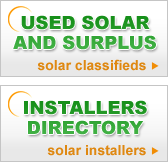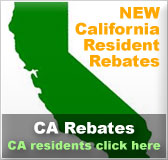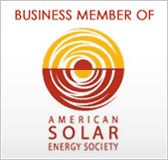Consumers Energy – photovoltaic purchase tariff:
-This buy-back tariff also known as the Experimental Advanced Renewable
Program offers its residential customers who own a photovoltaic system
the option to sell all of the electricity produced to Consumer’s
Energy at a rate of $0.65 per kilowatt hour during 2009, and $0.525
per kilowatt throughout 2010.
-The eligible residential system size needs to be at least 1 kilowatt
but no more than 20 kilowatts.
-Systems must be manufactured in the state of Michigan to qualify.
-Contracts last between 1-12 years.
Renewable energy rebates – WPPI Energy:
-Residents of Michigan and customers of some WPPI Energy utilities
who install a renewable energy system to be used at their dwelling,
are eligible to receive a rebate for their system.
-The rebate for a residential solar water heating system or solar
thermal heating system is $30 per square foot of the collector area.
Maximum incentive amount is $3,500 or 35% of total cost, which ever
is less. Electric space heating from a solar thermal heating system
must provide at least half of the heat in the dwelling to be eligible
for a rebate)
-The rebate amount for a photovoltaic system up to 20 kilowatts installed
onto a new construction is $3.00 per kilowatt-hour. The rebate for
a photovoltaic system installed by a NABCEP certified installer on
an existing building is $2.50 per kilowatt-hour. If the system is
not installed by a NABCEP installer on an existing building the rebate
is $2.00 per kilowatt-hour.
-The rebate amount for a small wind energy system up to 20 kilowatts
is 25% of the system’s cost. Maximum incentive is $10,000.
-Owners of PV, solar water heating, and wind energy systems will also
receive a 50% rebate of the cost of service and repairs on the system.
Residential renewable energy tax credit:
-This personal tax credit allows the taxpayer to claim a credit of
30% of expenditures including labor costs and installation of qualified
residential solar-electric systems, solar water heating systems or
fuel cells. Small wind-energy systems and geothermal heat pumps can
also be accredited for.
-Solar-electric systems and solar water heaters have a maximum incentive
of $2,000 if placed in service before 2009. There is no maximum incentive
for systems placed after 2008.
-The excess amount of the federal tax credit may be carried forward
to the next taxable year if it exceeds tax liability.
-This can be carried forward until 2016, but after that, it is unknown
if the unused credit will be able to be forwarded.
Residential energy conservation subsidy exclusion:
-This is a personal exemption of 100% of energy conservation subsidies
provided by public utilities.
-The value of a purchase or installation of any energy conservation
measure by a customer such as solar water heat, solar space heat or
photovoltaics will not be included in the customer’s gross income.
-Customers of an electric utility company, who participate in the
utility’s energy conservation program, may receive a rate reduction
of electricity furnished or a nonrefundable credit against the purchase
price of the electricity on each monthly electric bill.
Energy-efficient mortgages:
-This is a federal loan program where homeowners can use EEM (energy-efficient
mortgages) to finance renewable energy technologies in a home.
Net metering:
-Net metering is available to residents of Michigan who have renewable
energy equipment such as solar, wind, geothermal, biomass or hydroelectric
power that is capable of calculating the flow of electricity in two
directions.
-Net metering applies only to rate-regulated utilities and alternative
electric suppliers.
-The net excess generation is given to the customer at the utilities
retail rate if the system is 20kw or less as a credit on the customer’s
next bill. If the system is between 20kW-150kW the customer will receive
a credit at the power supply component of the retail rate.
-Maximum system capacity limit is 150kW.
-Qualifying systems must meet all efficiency requirements.









